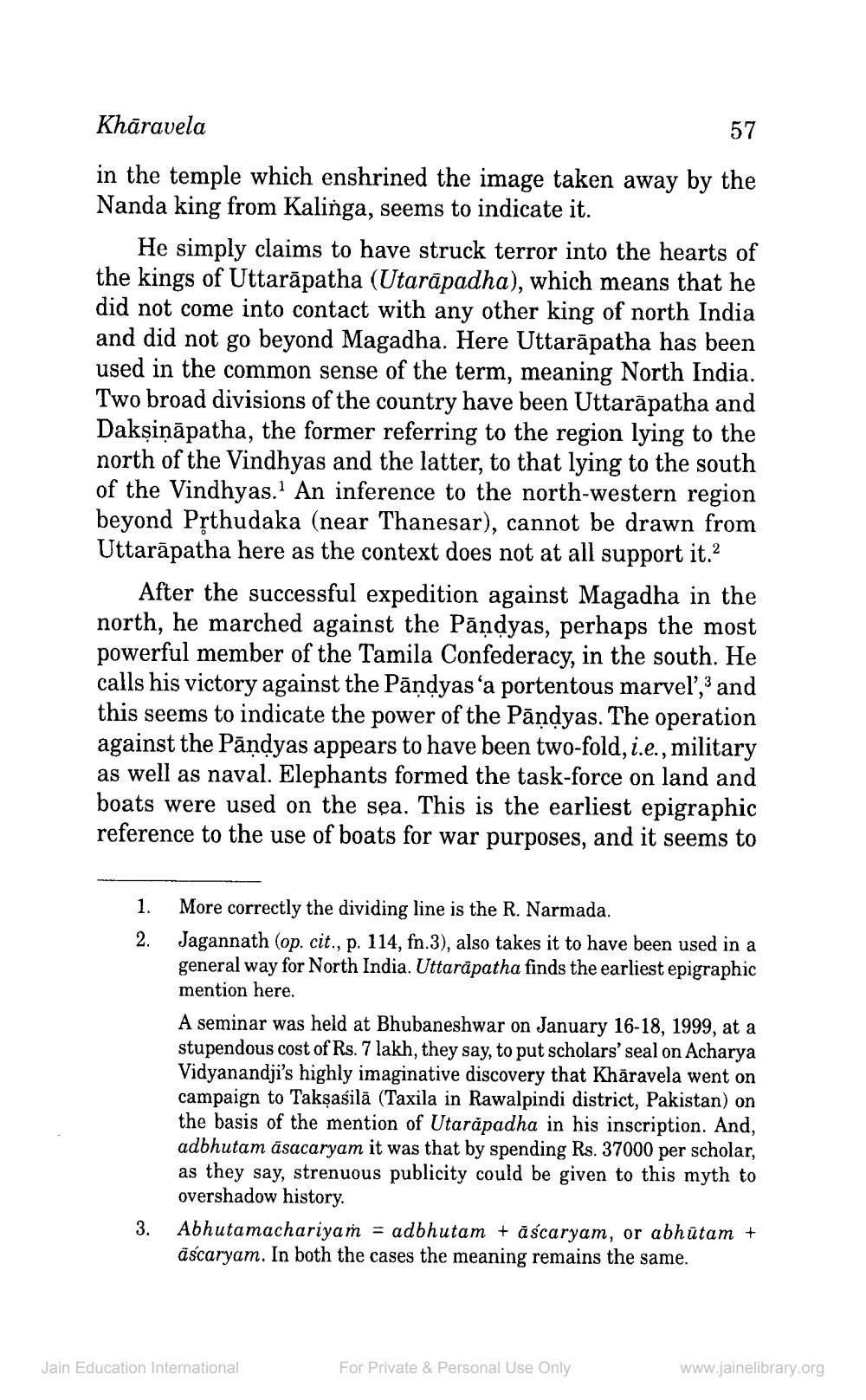________________
Khāravela
57
in the temple which enshrined the image taken away by the Nanda king from Kalinga, seems to indicate it.
He simply claims to have struck terror into the hearts of the kings of Uttarapatha (Utarapadha), which means that he did not come into contact with any other king of north India and did not go beyond Magadha. Here Uttarapatha has been used in the common sense of the term, meaning North India. Two broad divisions of the country have been Uttarapatha and Dakṣiṇāpatha, the former referring to the region lying to the north of the Vindhyas and the latter, to that lying to the south of the Vindhyas.1 An inference to the north-western region beyond Prthudaka (near Thanesar), cannot be drawn from Uttarapatha here as the context does not at all support it.2
After the successful expedition against Magadha in the north, he marched against the Pandyas, perhaps the most powerful member of the Tamila Confederacy, in the south. He calls his victory against the Pandyas 'a portentous marvel',3 and this seems to indicate the power of the Pandyas. The operation against the Pandyas appears to have been two-fold, i.e., military as well as naval. Elephants formed the task-force on land and boats were used on the sea. This is the earliest epigraphic reference to the use of boats for war purposes, and it seems to
1.
2.
3.
More correctly the dividing line is the R. Narmada.
Jagannath (op. cit., p. 114, fn.3), also takes it to have been used in a general way for North India. Uttarapatha finds the earliest epigraphic mention here.
A seminar was held at Bhubaneshwar on January 16-18, 1999, at a stupendous cost of Rs. 7 lakh, they say, to put scholars' seal on Acharya Vidyanandji's highly imaginative discovery that Khāravela went on campaign to Takṣasila (Taxila in Rawalpindi district, Pakistan) on the basis of the mention of Utarapadha in his inscription. And, adbhutam asacaryam it was that by spending Rs. 37000 per scholar, as they say, strenuous publicity could be given to this myth to overshadow history.
Abhutamachariyam adbhutam + aścaryam, or abhūtam + ascaryam. In both the cases the meaning remains the same.
Jain Education International
For Private & Personal Use Only
www.jainelibrary.org




